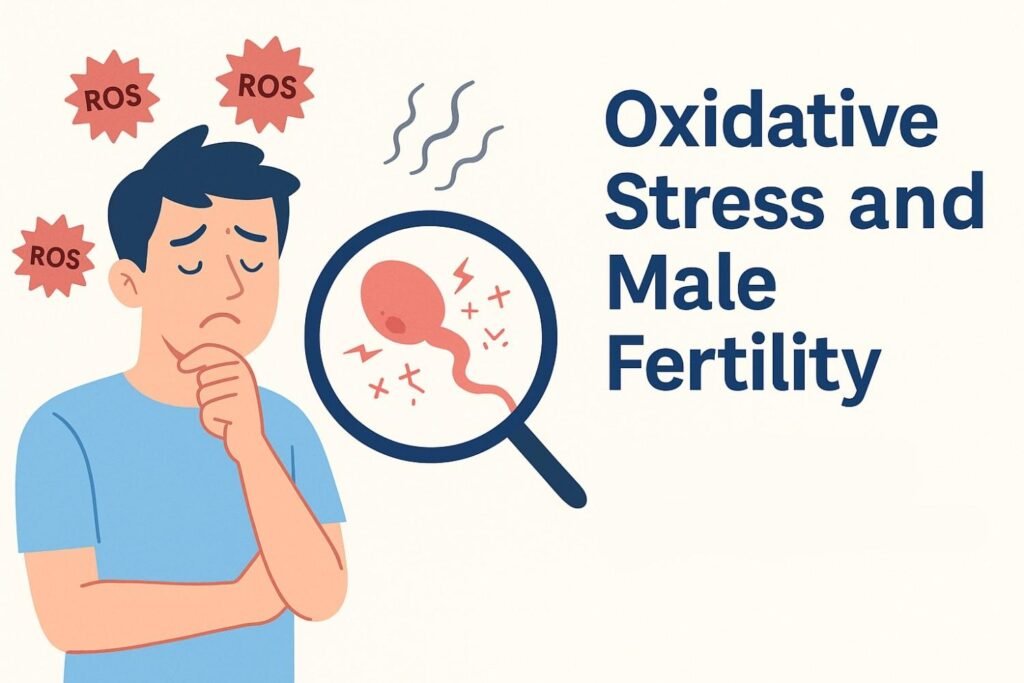Oxidative stress has emerged as a significant factor affecting male fertility. It occurs when there’s an imbalance between free radicals (reactive oxygen species) and the body’s ability to neutralize them with antioxidants. While free radicals are naturally produced in the body, an excess of them can damage cells—including sperm cells.

How Oxidative Stress Affects Male Reproductive Health
- Sperm DNA Damage: Free radicals can harm the DNA inside sperm, leading to reduced fertilization potential and higher risk of miscarriage.
- Poor Sperm Motility: Oxidative stress often leads to sluggish or immobile sperm, reducing the chances of successful conception.
- Low Sperm Count: Excess oxidative stress can interfere with sperm production, resulting in oligospermia (low sperm count).
- Abnormal Morphology: It may also alter the structure of sperm, reducing their ability to penetrate the egg.
Common Causes of Oxidative Stress in Men
- Smoking and alcohol use
- Obesity and poor diet
- Chronic illnesses like diabetes
- Exposure to environmental toxins (pollution, pesticides)
- Heat exposure (e.g., hot tubs, tight clothing)
- Psychological stress
How to Reduce Oxidative Stress and Improve Fertility
- Antioxidant-Rich Diet: Include foods like berries, nuts, leafy greens, and citrus fruits that help neutralize free radicals.
- Avoid Smoking & Alcohol: These increase oxidative stress and directly impair sperm health.
- Exercise Regularly: Moderate physical activity boosts circulation and reduces stress.
- Maintain Healthy Weight: Obesity is linked with hormonal imbalances and oxidative damage.
- Take Supplements: Supplements like Vitamin C, E, zinc, CoQ10, and selenium may improve sperm parameters—but only under medical supervision.
- Manage Stress: Techniques like yoga, meditation, and counseling can lower mental stress, indirectly supporting sperm quality.
Conclusion
Oxidative stress is a silent contributor to male infertility—but it’s manageable. Lifestyle changes, proper nutrition, and timely intervention can significantly improve male reproductive health.